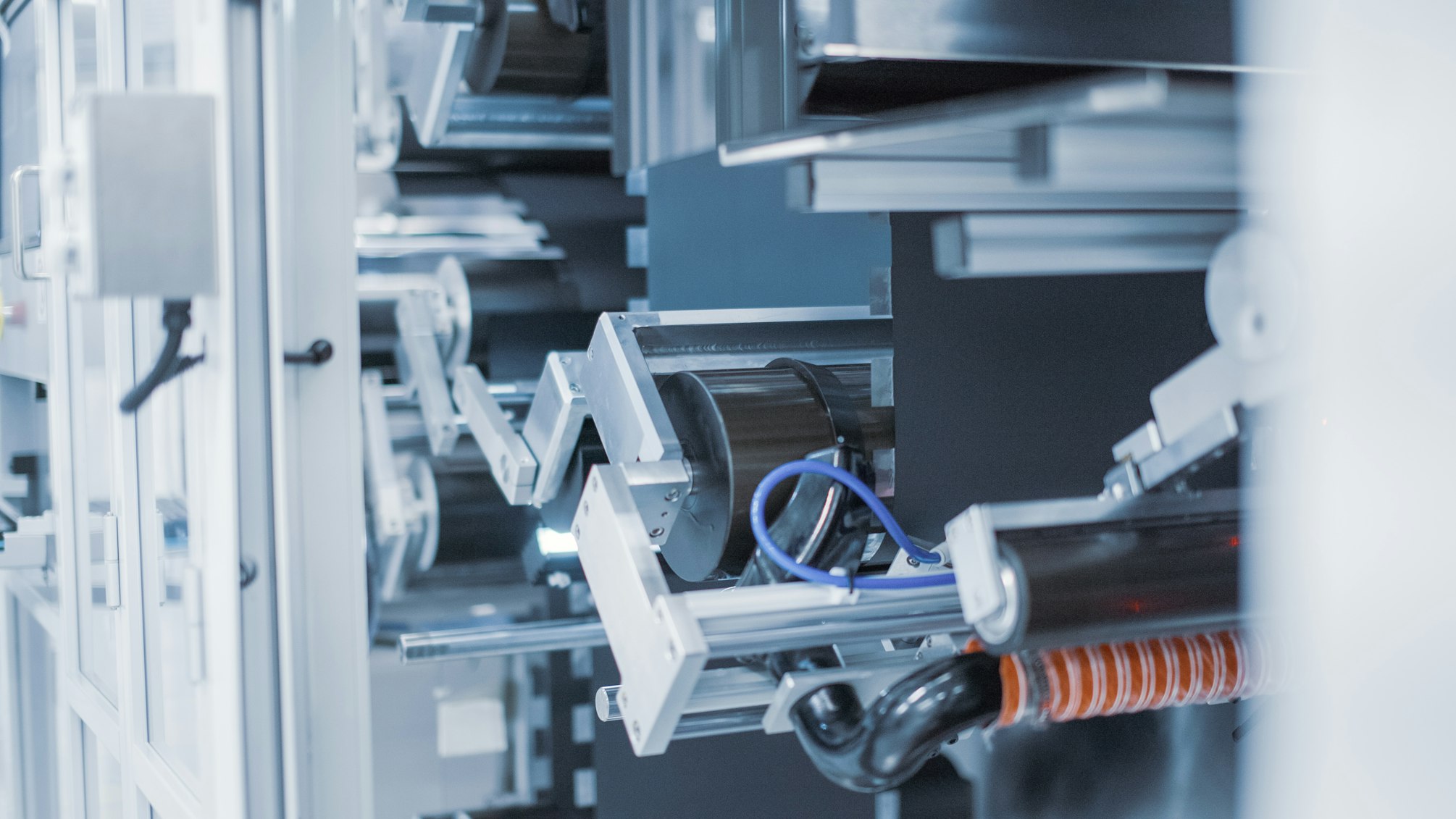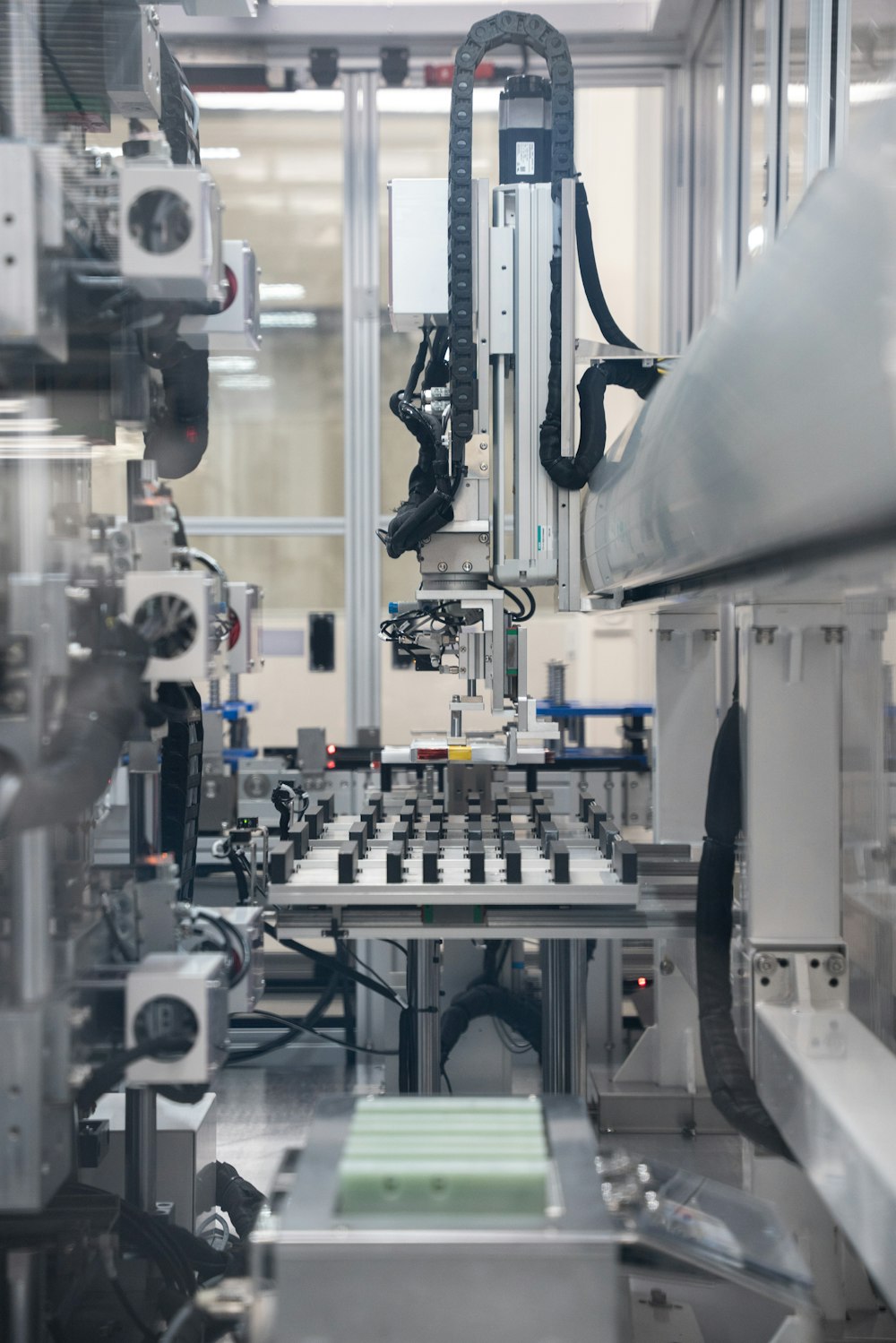Northvolt’s embrace of machine learning
30 November, 2023
How does a newcomer to the battery industry compete against the long-established competition? By re-writing the rulebook on battery cell manufacturing and R&D.

Across multiple domains of industry, machine learning is emerging as an invaluable asset. Powerful tools based around this subdomain of artificial intelligence have accelerated discoveries and innovation in fields of biomedicine and pharmaceuticals. While the applications of machine learning are limitless, what they invariably share is the harnessing of computational power to handle immense volumes of data.
A subset of artificial intelligence, machine learning entails the training of machines to imitate how humans absorb and interpret information, gradually improving their accuracy through the handling of more data that they are provided.

The battery industry, from the perspective of both R&D and manufacturing, is data-heavy — a characteristic leaving it perfectly matched to the strengths of machine learning. Yet the application of machine learning within the field of battery research is uncharted territory. With the need to develop new battery technologies to support the decarbonization of society, the absence of machine learning within the industry is a missed opportunity.
Founded with intentions to disrupt the traditional model for battery manufacturing with a sustainable approach to batteries, we’re stepping up our engagement with machine learning. By embracing this new frontier within the field of batteries, Northvolt is set to accelerate innovation and provide foundations for a new era of battery research, design and manufacturing.
Pioneering a new battery industry – enabled by machine learning
Traditional battery equipment manufacturers are not experts in building machine learning solutions. While both battery R&D and manufacturing are data heavy — a characteristic that lends itself to machine learning — the industry has barely scratched the surface of what the integration of machine learning solutions could mean for its activities.
Simply put, there are things we can do with machine learning that no amount of individuals could ever accomplish. Leveraging this circumstance, Northvolt has established a multi-disciplinary team to accelerate next-generation battery technologies using machine learning and other AI-driven solutions.
The new Machine Intelligence & Software team will use its machine learning expertise to tackle some of the hardest challenges in the battery industry — adding a critical intelligence layer to Northvolt R&D activities, covering equipment, cell design, cell performance analysis and cell inspection and other sensing technologies.
Machine learning tools have dramatically accelerated drug discovery. The battery industry is next.
Based at Europe’s foremost battery technology R&D campus, Northvolt Labs in Västerås, Sweden, the team will join top-tier talent dedicated to cracking some of the hardest engineering challenges and questions in energy science in the world today.
We're applying machine learning across three key areas: accelerating the development of novel battery materials, supporting the industrialization of cell production for customers, and advancing sensing and analysis techniques in manufacturing.

Machine learning in practice
One aspect of the battery manufacturing process which is a perfect fit for the use of machine learning is electrode and sheet inspection for surface defects — a difficult and time-consuming task performed by operators, requiring them to visually inspect material for various types of defects.
Subject to the risk of human error, the time-consuming nature of this task can make it a bottleneck on the production line.
At Northvolt Ett, our gigafactory in northern Sweden, we have implemented a new solution, which couples sensing technology developed in-house by the Machine Vision team with machine learning algorithms developed by the ML algorithms team at Northvolt Labs.
Using this new technology, defects are identified at material processing speeds of up to 50-70 meters/min in electrode coating production and less than a second per sheet in stacking. The defective material is flagged and selected for manual inspection or scrapped (for eventual later recycling, of course). The material deemed perfect bypasses the human control altogether.
The final results of this can be seen in scrap costs, process tuning latency as well as key knowledge about our manufacturing process.
By embracing machine learning, Northvolt is able to overcome several of the challenges associated with being a relative newcomer to the industry. Not only does this enable the optimization of cell manufacturing at our gigafactories, it opens doors to entirely new and unexplored fields of battery chemistry and design research, while returning time to our people, and allowing them to do more.
Are you passionate about AI and machine-learning? Do you want to work with cutting-edge technology to shape the future of industry? Click here!